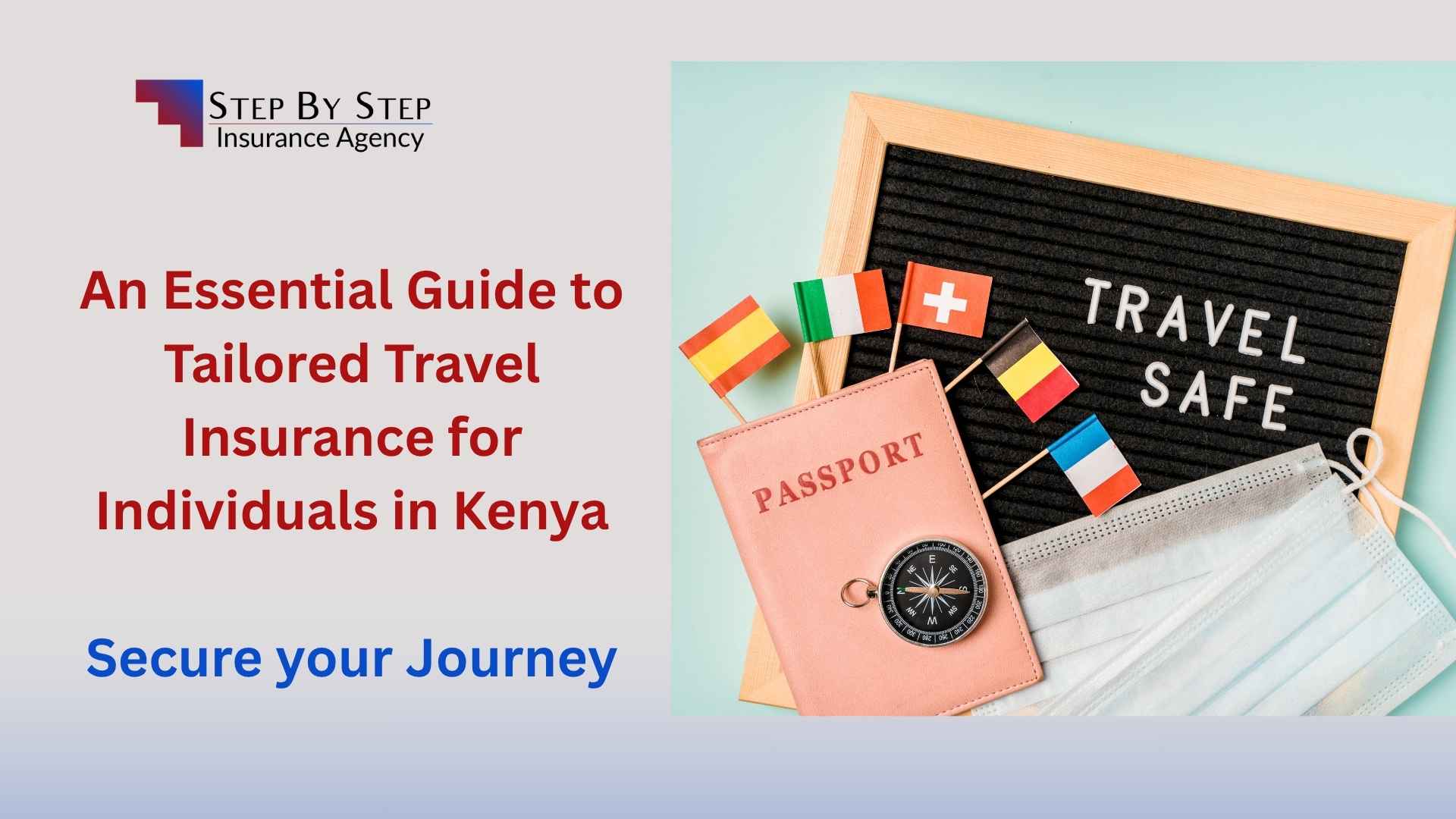Factors to Consider When Choosing Travel Insurance for International Travel
Traveling internationally is an exciting experience, but it also comes with its share of uncertainties. Whether you’re embarking on a vacation, a business trip, or seeking medical treatment abroad, the risks associated with international travel can often be unpredictable. From medical emergencies to lost luggage, trip cancellations, or even unforeseen natural disasters, there are countless potential issues that can disrupt your plans.
While most of us focus on the exciting aspects of travel—sightseeing, new experiences, or meeting new people—it’s just as important to think about how we will handle the challenges that could arise.
This is where travel insurance comes in. Securing the right travel insurance plan can provide you with the peace of mind to enjoy your trip without constantly worrying about what could go wrong.
Travel insurance is designed to protect you from financial losses due to unforeseen events that can occur during your trip. It’s an investment in your safety and security. However, not all travel insurance policies are created equal. Each trip is unique, and so are your insurance needs. Therefore, it is essential to carefully evaluate your options before choosing a policy.
The right coverage can make a significant difference in your experience, whether you’re dealing with a medical emergency, losing your luggage, or needing assistance in a foreign country.
In this guide, we’ll walk you through the key factors to consider when selecting travel insurance for international travel. These factors will help you understand what aspects to look out for to ensure that your travel insurance adequately addresses your needs, reduces potential financial burdens, and ensures your safety while abroad.
From medical coverage to trip cancellation, baggage protection, and more, we will cover the essential elements that you should include in your travel insurance policy to make sure you’re fully protected. Understanding these factors will enable you to make an informed decision, ensuring that your international travel insurance is comprehensive, affordable, and perfectly suited to your specific travel needs.
Whether you’re a frequent traveler or embarking on your first international journey, this guide will help you navigate the often complex world of travel insurance and choose a policy that best suits your plans and offers the right level of coverage.
By considering these key elements before making a decision, you’ll be in a much stronger position to handle any unexpected challenges during your trip and travel with confidence, knowing that you’re covered for a wide range of potential issues.
Here are the key factors to consider when selecting travel insurance for international travel:
1. Coverage for Medical Emergencies
One of the most important factors to consider is medical coverage.
Health care can be very expensive abroad, and in some countries, you may not have access to the same healthcare services as you do in Kenya.
Make sure your insurance plan covers:
- Emergency medical treatment for illnesses or injuries while abroad
- Emergency medical evacuation in case you need to be transported back to Kenya for treatment
- Repatriation of remains in case of death during your trip
- Coverage for pre-existing medical conditions, if relevant
2. Trip Cancellation and Interruption Coverage
Unexpected events can disrupt your travel plans, from health issues to family emergencies. Trip cancellation and interruption coverage can reimburse you for the non-refundable costs of your trip if it’s canceled or cut short.
Consider policies that offer:
- Cancellation protection for reasons like illness, death, or unforeseen events
- Trip interruption benefits if you need to cut your journey short and return home unexpectedly
- Travel delay coverage, to cover expenses incurred during long delays
3. Lost, Stolen, or Damaged Luggage Coverage
Traveling internationally increases the likelihood of issues with luggage. Whether it’s lost, delayed, or damaged, you’ll want insurance that protects your belongings.
Make sure to check if your plan includes:
- Lost baggage coverage, to reimburse you for the value of lost items
- Delayed baggage reimbursement, for essential items you need while waiting for your luggage to arrive
- Stolen property coverage, to protect against theft while traveling
4. Destination and Activity Coverage
Different destinations and activities carry different risks.
If you’re planning to engage in adventurous activities like hiking, skiing, scuba diving, or other sports, check whether the policy includes coverage for those activities.
- Adventure sports coverage: Ensure your policy includes coverage for risky activities if you plan to engage in them.
- Natural disaster coverage: If you’re traveling to areas prone to natural disasters, ensure your insurance covers evacuation in case of emergencies like earthquakes or hurricanes.
5. Travel Assistance Services
A comprehensive travel insurance policy should include access to 24/7 travel assistance. This can be invaluable when you’re in a foreign country and need help in an emergency.
Look for insurance plans that provide:
- Global assistance hotlines, available at any time during your trip
- Assistance with travel arrangements in case of delays, cancellations, or emergencies
- Translation services if you encounter language barriers during emergencies
6. Policy Exclusions
Before purchasing, review the exclusions in your policy carefully. Some common exclusions include:
- High-risk activities, like extreme sports or dangerous hobbies
- Travel to certain countries that may be deemed high-risk or unstable by your insurer
- Alcohol or drug-related incidents during your trip
Understanding these exclusions will help you avoid surprises if you need to make a claim.
7. Cost of the Insurance
The cost of travel insurance varies depending on factors such as your age, the duration of your trip, the destination, and the level of coverage. It’s important to balance the cost of the insurance with the coverage it provides.
Here’s what you need to consider:
- Premiums: Compare different policies to get the best value for your budget
- Deductibles: Check for deductibles that might apply when making a claim
- Limits on coverage: Ensure the policy provides sufficient coverage for the risks involved
8. Reputation of the Insurance Provider
When choosing travel insurance, the reputation of the insurance provider matters. Look for a provider that has:
- Positive customer reviews and testimonials
- A history of prompt claims processing
- Good customer support, especially for international travelers
You can check reviews and ratings on trusted platforms to gauge the reliability of the insurer.
Conclusion: Factors to Consider When Selecting Travel Insurance for International Travel
Selecting the right travel insurance for international trips is a crucial step in ensuring a safe and worry-free travel experience.
While it may be tempting to overlook or skimp on insurance, particularly when travel costs are high, investing in comprehensive coverage can make a world of difference in protecting you from potential disruptions, emergencies, and financial losses.
Throughout this guide, we’ve highlighted the key factors to consider when choosing the right travel insurance plan for your international journey.
Each factor plays an essential role in providing you with the coverage you need to handle any unexpected situations that may arise during your trip.
From medical emergencies and trip cancellations to lost luggage, accidents, and even natural disasters, the right insurance policy can offer critical protection and peace of mind.
One of the most important factors to remember is medical coverage. International health care systems vary greatly, and medical expenses can be extremely costly, especially in countries without public health systems.
Having a policy that covers emergency medical treatment, medical evacuation, and repatriation ensures that you can receive care when needed, without the financial burden of high medical bills. This is particularly important if you are traveling to regions where health services might be less accessible or more expensive than in your home country.
The next crucial element is trip cancellation and interruption protection. Whether it’s due to an unexpected illness, a family emergency, or unforeseen circumstances like political unrest or natural disasters, trip cancellation insurance safeguards you from losing the money you’ve invested in flights, hotels, and activities.
This kind of coverage can also help you rebook your travel or adjust your itinerary in case of delays, allowing you to salvage your plans and avoid unnecessary stress.
Another factor that should not be overlooked is lost baggage coverage. While it’s not something we like to think about, the reality is that luggage can be delayed, lost, or damaged during international travel. With the right insurance, you can receive compensation for your lost or delayed belongings, allowing you to replace essential items and continue your trip without interruption.
Additionally, the specific risks of your destination and activities planned should be carefully considered. For instance, if you’re traveling to areas with a higher risk of natural disasters or political instability, you’ll want to ensure that your insurance includes coverage for evacuation, trip interruptions, and emergencies specific to those conditions. Similarly, if you plan on engaging in adventurous activities such as hiking, skiing, or scuba diving, you’ll need to check that your insurance policy includes coverage for these high-risk sports.
Moreover, it’s important to thoroughly review the policy exclusions and deductibles. Understanding what is and isn’t covered under your plan will help avoid unpleasant surprises in case you need to make a claim. Pay special attention to exclusions related to pre-existing conditions, alcohol consumption, or any other circumstances that could affect the validity of your insurance during an emergency.
Cost is another factor to consider when selecting your travel insurance, but it should not be the only deciding factor. While it’s important to find a policy that fits your budget, opting for the cheapest option may leave you underinsured. Instead, focus on finding the best balance between comprehensive coverage and affordability. A slightly higher premium can provide much-needed protection and save you significant costs in the event of a claim.
Finally, consider the reputation of the insurer. The reliability of the insurance provider is crucial, particularly when you’re dealing with emergency situations abroad. Choose an insurance company with a strong track record of handling claims promptly, offering 24/7 assistance, and providing customer service that you can rely on, even in a different time zone.
By evaluating all these factors, medical coverage, trip cancellation protection, baggage insurance, exclusions, costs, and the credibility of the insurer—you are better equipped to select a travel insurance plan that truly protects your interests and supports you throughout your international trip.
In conclusion, while travel insurance may seem like an additional expense, it is an essential safeguard against the unpredictable nature of international travel. It allows you to travel with peace of mind, knowing that should something go wrong, you have the resources and support to handle the situation efficiently and effectively.
Before your next international trip, make sure you’re fully covered. Contact Step By Step Insurance Agency today to explore tailored travel insurance options that fit your travel plans and provide peace of mind.
#TravelInsurance #InternationalTravel #InsuranceCoverage #SafeTravels #StepByStepInsurance






